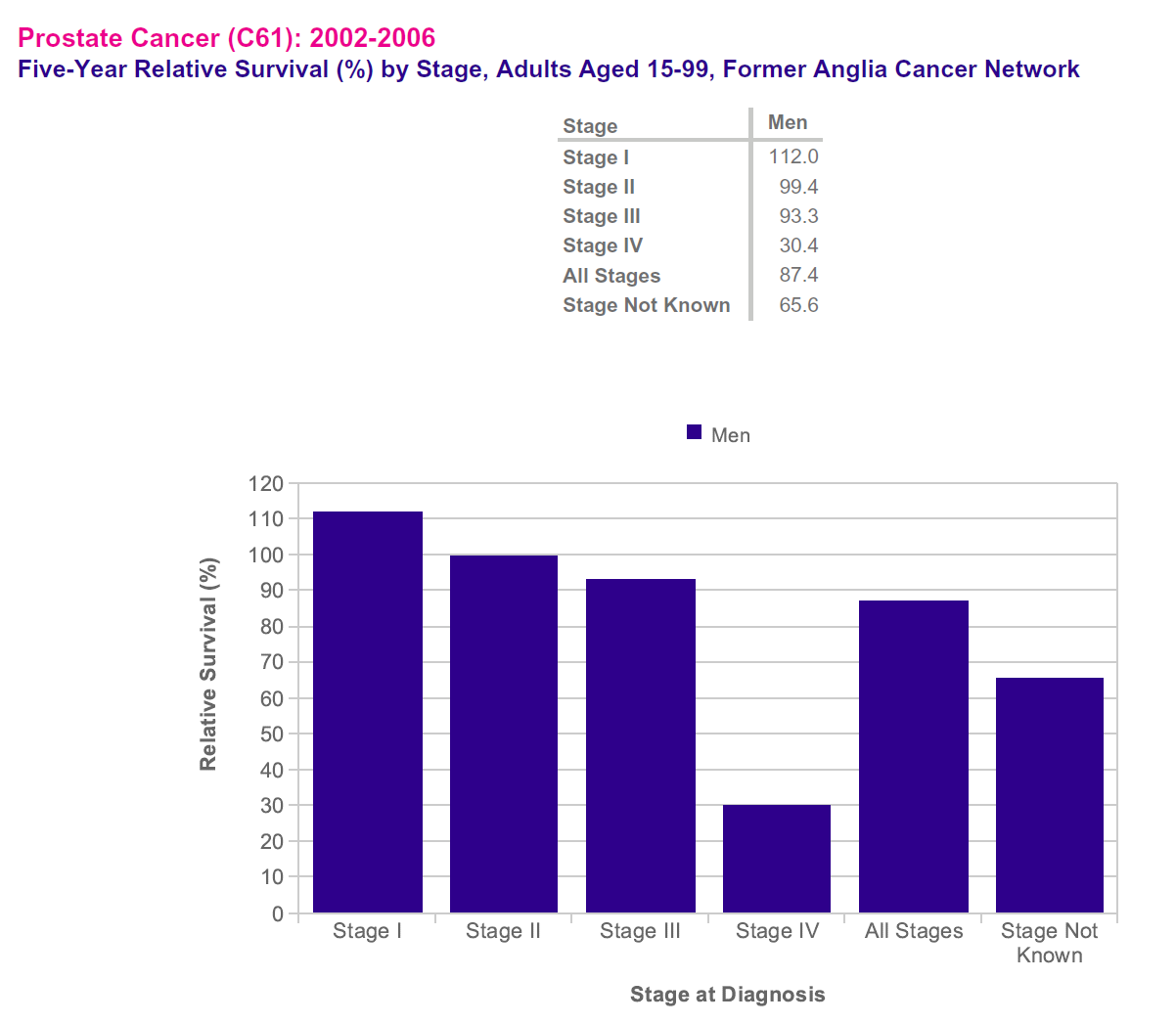Prognosis of prostate cancer
Clinical Findings | Treatment | Fifteen year survival |
>5% of prostate involved | Total prostatectomy | 30-45% |
periprostatic extension | irradiation +/- hormonal therapy | 20-30% |
pelvic lymph nodes involved or distant metastases | hormonal therapy | 0-10% |
With respect to localized prostate cancer:
- men with low-grade prostate cancers have a minimal risk of dying from prostate cancer during 20 years of follow-up (Gleason score of 2-4, 6 deaths per 1000 person-years; 95% CI, 2-11)
- men with high-grade prostate cancers have a high probability of dying from prostate cancer within 10 years of diagnosis (Gleason score of 8-10, 121 deaths per 1000 person-years; 95% CI, 90-156)
- men with Gleason score of 5 or 6 tumors have an intermediate risk of prostate cancer death
- the study authors concluded that the annual mortality rate from prostate cancer appears to remain stable after 15 years from diagnosis (1)
The following are associated with high-grade cancer:
- smaller prostate volume (as determined by TRUS)
- abnormal DRE findings (if the prostate gland is enlarged, tender, nodular, hard or
- immobile due to adhesion to surrounding tissue)
- increasing age
- black-African and black-Caribbean ethnicity (2)
Summary prognosis data (3):
- more than 8 in 10 (84%) men diagnosed with prostate cancer in England and Wales survive their disease for ten years or more (2010-11)
- almost 9 in 10 (85%) men diagnosed with prostate cancer in England and Wales survive their disease for five years or more (2010-11)
- almost 95% (94%) of men diagnosed with prostate cancer in England and Wales survive their disease for one year or more (2010-11)
- prostate cancer survival in England is higher for men diagnosed aged 60-69 years old, probably because of PSA testing detecting latent, earlier, slow-growing cancers (2009-2013)
- almost 95% of men in England diagnosed with prostate cancer aged 50-59 or 60-69 survive their disease for five years or more, compared with two thirds of men diagnosed aged 80 and over (2009-2013)
- prostate cancer survival is improving and has tripled in the last 40 years in the UK, probably because of PSA testing. In the 1970s, a quarter of men diagnosed with prostate cancer survived their disease beyond ten years, now it's more than 8 in 10
- when diagnosed at its earliest stage, all men with prostate cancer will survive their disease for five years or more, compared with less than a third of men when diagnosed at the latest stage

Reference:
- (1) Albertsen PC et al. 20-year outcomes following conservative management of clinically localized prostate cancer. JAMA 2005; 293:2095-101
- (2) Prostate Cancer Risk Management Programme Information for primary care; PSA testing in asymptomatic men. Evidence document. NHS Cancer Screening Programmes, 2010
- (3) CRUK. Prostate cancer statistics (Accessed 29/5/19)
Related pages
Create an account to add page annotations
Add information to this page that would be handy to have on hand during a consultation, such as a web address or phone number. This information will always be displayed when you visit this page